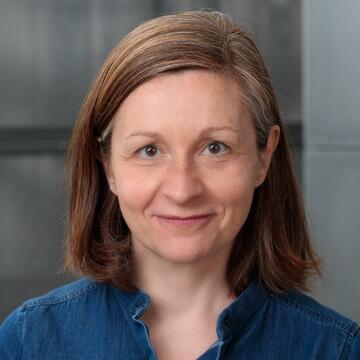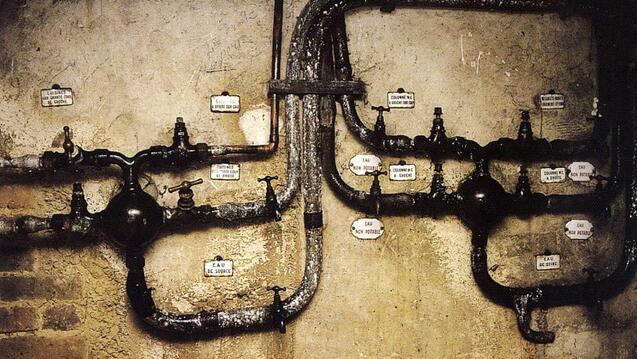
Francesca Torello

Francesca Torello is an architectural historian and Special Faculty with Carnegie Mellon Architecture since 2007. She writes about the role of history in architectural education and practice, particularly at the turn of the twentieth century. She is also engaged in digital humanities projects that explore architecture’s latent virtuality and the cultural shifts brought about by digital technologies. These projects include ReCast (2018), the augmented reality (AR) experience for historic plaster casts, and Virtual Fresco for the Great Hall of the College of Fine Arts, a Beaux Arts building on Carnegie Mellon’s Pittsburgh campus.
Trained as an architect, Francesca has studied the impact that changes in architectural education had on the built environment, beginning with her dissertation on the generation of architects of the Viennese Ringstrasse (2003) and the effects of disciplinary specialization on the culture of architects (INHA-SAH, 2005). She has published about the reception of art historical writing in the late nineteenth century Viennese architectural debate (Engaging the past. Albert Ilg’s Die Zukunft des Barockstils, in “The Baroque in Architectural Culture, 1880-1980”, ed. Andrew Leach, John MacArthur, and Maarten Delbeke Ashgate, 2015), and in turn of the century architecture pedagogy (TU Wien, January 2019). She has also co-chaired conference sessions on the role of architectural history in its relationship with practice today and in historical iterations (SAH 2016, ACSA 2017).
As a National Endowment for the Humanities Fellow at the Newberry Library in Chicago (2016), she focused on the changing geographies of travel and tourism in the Mediterranean between 1870 and 1910. The project is connected with the study of two contrasting “Grand Tour surrogates” from Pittsburgh's Gilded Age: the Great Hall of the College of Fine Arts and the collection of architectural plaster casts of the Carnegie Museum of Art. This part of her work combines historical research with digital media. With collaborator and faculty colleague Joshua Bard, Francesca developed ReCast, an AR experience for plaster casts, and the design studio “Low Relief,” in which architecture is examined as proto-virtual interface. These projects study historical plaster techniques to address contemporary design issues from robotic plastering to virtual reality. These projects were part of the Carnegie Museum of Art “Copy+Paste” exhibition (2018) and presented at Duke University Wired Lab (2017), ETH Zürich (2018) and ACSA Pittsburgh (2019).
As a National Endowment for the Humanities Fellow in Washington DC in the summer of 2019, Francesca continued her research on turn of the century museum culture, the changing boundaries of history and memory, and the shifts brought about by digital technologies.
Francesca holds a master’s degree from the interdisciplinary program in Architecture and Urban Culture “Metropolis” at the Universitat Politecnica de Catalunya/Centre de Cultura Contemporania Barcelona. She holds a PhD in Architectural History, Urban History and Preservation from the Politecnico di Torino, Italy.
Spring 2025 Teaching
The city of Pittsburgh is at once our (permanent or temporary) home and the site of many of our studio projects. In this class, students will start exploring Pittsburgh: as built environment in which their work might be situated, as cultural context they need to interpret, and as creative material for their own work.
This seminar looks at the history of the architecture of the last two centuries by following the thread of the history of materials. We learn from historical examples to assess the consequences of the choices we make as designers.
Fall 2024 Teaching
This seminar prepares undergraduate students planning to work on a thesis project in the following semester.
The course engages critically with the outsized influence of antiquity on architectural theory and practice by following the intertwined histories of architecture and archaeology, from the mid-eighteenth to the early twentieth century.
Fulfills major and minor requirements for: Architectural History
Keywords: Design Ethics, Design Research
![Rothstein, Arthur. Cars parked along Allegheny River, Pittsburgh, Pennsylvania. 1938. Farm Security Administration, Library of Congress Prints and Photographs Division [detail] https://www.loc.gov/item/2017723800/.](/sites/default/files/styles/16_9_637x359/public/2024-10/48111_%20Torello%20-%20Francesca%20Torello.png.jpeg?itok=7MTMhX7x)


